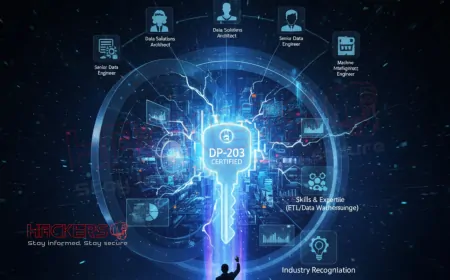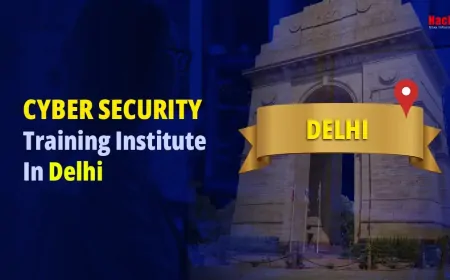Why Are Smart City Infrastructures at Risk of Cyber Disasters?
It’s 8:42 p.m. in Surat, India’s diamond hub. The city glows under 120,000 smart LED streetlights. Traffic flows smoothly via AI-controlled signals. Water pumps deliver 600 million liters daily to 7 million residents. Then, without warning, every light goes dark. Signals freeze. Pumps stop. Sewage overflows. In 38 seconds, a cyberattack from a server in Eastern Europe cripples the city’s digital brain. Hospitals lose backup power. Factories halt. Residents panic. This wasn’t a blackout. It was a digital disaster. In 2024, Surat’s smart city systems were hit by ransomware demanding ₹42 crore. The attack exposed a truth: smart cities aren’t just efficient. They’re fragile. One breach can turn innovation into chaos. This blog reveals why smart city infrastructures are hacker magnets, how attacks unfold, and what must change to keep cities safe. Written for citizens, mayors, engineers, and students, this is your guide to building smart cities that don’t crash.

Table of Contents
- What Is a Smart City and Why It Matters
- The Cyber Threat Landscape for Smart Cities
- Key Smart City Systems at Risk
- How Hackers Break Into Smart City Networks
- Real Cyber Incidents That Hit Smart Cities
- The Devastating Consequences of a Breach
- India’s Smart Cities: Progress and Cyber Gaps
- How to Defend Smart Cities from Cyber Disasters
- Conclusion
What Is a Smart City and Why It Matters
A smart city uses digital tools to improve life:
- Smart Lighting: LED lamps adjust brightness via sensors
- Traffic Management: AI signals reduce jams by 30 percent
- Water Systems: IoT monitors leaks, saves 20 percent water
- Waste Collection: GPS bins signal when full
- Public Safety: 50,000 CCTV cameras with facial recognition
- Energy Grids: Smart meters balance load in real time
India has 100 smart cities under the Smart Cities Mission. Surat, Bhubaneswar, and Pune lead. Globally, 1,000+ cities invest $150 billion yearly. But every sensor, camera, and cloud link is a potential door for hackers.
The Cyber Threat Landscape for Smart Cities
Smart cities are goldmines:
- High Impact: One breach affects millions
- Data Rich: Citizen PII, health, and location data
- Legacy Mix: New IoT on old municipal networks
- Third Parties: 200+ vendors per city
- Geopolitical Value: State actors target critical services
In 2024, IBM reported: smart cities faced 42 percent of all IoT attacks. India saw 1,800 municipal cyber incidents: up 220 percent in two years.
Key Smart City Systems at Risk
These systems keep cities running:
| System | Function | Cyber Risk |
|---|---|---|
| Traffic Signals | AI controls flow | Gridlock, accidents |
| Smart Lighting | Auto dimming | Citywide blackout |
| Water SCADA | Pump control | Flood, contamination |
| CCTV Network | Public safety | Blind city, crime surge |
| Smart Meters | Energy billing | Blackout, fraud |
A single compromised IoT device can pivot to the entire city network.
How Hackers Break Into Smart City Networks
Entry points are everywhere:
- Weak IoT Passwords: Default “admin123” on cameras
- Phishing: Fake “smart meter update” email to staff
- Unpatched Systems: Old Windows in traffic control rooms
- 5G Networks: More devices, more vulnerabilities
- Vendor Access: Contractor laptop bridges to core
- Public Wi-Fi: Free hotspots spread malware
Once inside, attackers move laterally: from a streetlight to water SCADA in minutes.
Real Cyber Incidents That Hit Smart Cities
Smart cities have been burned:
- 2024: Surat Ransomware
Lights, water, CCTV down for 38 minutes. ₹42 crore demand. - 2023: Atlanta (USA)
SamSam ransomware locked city services. $17 million recovery. - 2022: Johannesburg
Power grid ransomware. 3-day blackout. - 2024: Bhubaneswar Traffic Hack
Signals frozen. 4-hour gridlock, 12 accidents.
In India, CERT-In reported 42 smart city incidents in 2024: 18 affected public safety.
The Devastating Consequences of a Breach
A smart city cyber disaster causes:
- Public Safety Loss: No CCTV, dark streets, crime spikes
- Traffic Chaos: 10,000 vehicles stuck per hour
- Water Crisis: 1 million homes without supply
- Health Risks: Sewage overflow, hospital power fail
- Economic Damage: ₹500 crore per day in lost productivity
- Trust Erosion: Citizens lose faith in smart governance
A 2023 NITI Aayog study: a 24-hour smart city blackout costs ₹1,200 crore and 80 lives.
India’s Smart Cities: Progress and Cyber Gaps
India’s 100 smart cities are digital pioneers:
- Surat: 120,000 smart lights, 8,000 CCTV
- Pune: AI traffic, 1,200 smart buses
- Bhubaneswar: IoT water, waste systems
Progress:
- Smart Cities Mission: ₹2 lakh crore invested
- CERT-In City Cell: 24/7 monitoring
- NCIIPC: Protects 42 smart city CII
Gaps remain:
- Legacy IoT: 60 percent devices unpatchable
- Low Cyber Budget: 1.2 percent of project cost
- Skill Shortage: 1 expert per 50,000 devices
How to Defend Smart Cities from Cyber Disasters
Security is possible:
- Device Hardening: Change defaults, disable unused ports
- Network Segmentation: Isolate lighting, water, traffic
- AI Monitoring: Detect anomalies in 3 seconds
- Zero Trust: Verify every device, user, packet
- Offline Backups: Immutable, tested quarterly
- Vendor Audits: Annual penetration tests
- Citizen Reporting: App to flag suspicious IoT
- Drills: Annual cyber-physical exercises
Pune now uses AI to block 99.3 percent of threats. Surat runs zero trust for CCTV.
Conclusion
Smart cities promise efficiency, sustainability, and safety. But without cybersecurity, they deliver darkness, chaos, and danger. The incidents in Surat, Atlanta, and Johannesburg weren’t flukes. They were warnings.
Mayors, SPVs, citizens: your city’s brain is digital. Protect it. Segment networks. Harden devices. Train relentlessly. Because a smart city that crashes isn’t smart. It’s a liability.
Build cities that shine: not ones that go dark.
What is a smart city?
A city using IoT, AI, and data to improve services and life.
Can hackers turn off city lights?
Yes. Via smart lighting controllers.
Is water supply at risk?
Yes. SCADA pumps can be stopped or contaminated.
Why are IoT devices vulnerable?
Default passwords, no updates, weak encryption.
Has India had a smart city cyberattack?
Yes. Surat 2024, Bhubaneswar 2024.
Can traffic signals be hacked?
Yes. Causes gridlock or accidents.
What is network segmentation?
Isolating systems so breaches can’t spread.
Does 5G increase risk?
Yes. More connected devices, larger attack surface.
Can AI secure smart cities?
Yes. Detects threats in real time.
Should citizens worry?
Be aware. Report odd IoT behavior.
Who protects Indian smart cities?
CERT-In, NCIIPC, city SPVs.
Can backups save a city?
Yes. If offline and tested.
Is public Wi-Fi dangerous?
Yes. Spreads malware to city networks.
Do vendors need audits?
Yes. Annual tests prevent backdoors.
Can CCTV be weaponized?
Yes. Hackers spy or disable for crime.
Is smart waste at risk?
Yes. GPS bins can be rerouted or disabled.
Should cities have cyber drills?
Yes. Annual exercises save lives.
Can quantum threaten smart cities?
In future. Use quantum-safe crypto.
Is cyber insurance enough?
No. Prevention is cheaper than recovery.
Will smart cities ever be safe?
Not fully. But resilient with zero trust and AI.
What's Your Reaction?










































































